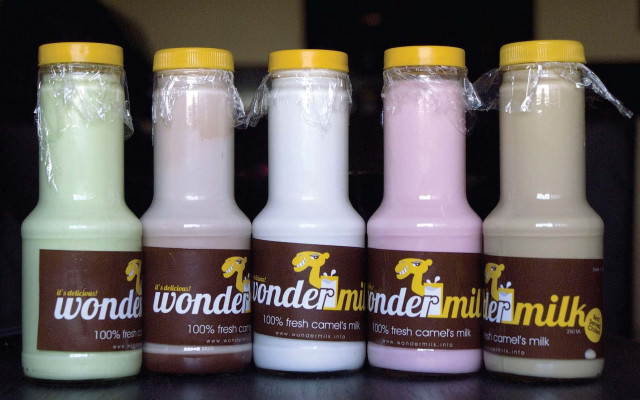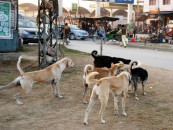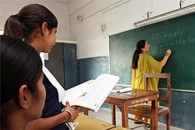Can Karachi’s camel milk shake the medical world?
A husband’s lactose-intolerant quest turned into a small business.

Wondermilk, founded by Ambreen Jahangir and her daughter Sarah, was inspired by Ambreen’s lactose-intolerant husband’s quest to find an alternative to regular milk. “He started by Googling information about camel milk,” she told The Express Tribune. “He then found camel herders, bought it directly from them and started drinking two to three glasses a day.” She admitted being initially turned off by the idea.
But then, after her husband continually insisted she try it out, the diabetic Ambreen read up on the milk’s nutritional potential and gave it a try. “After drinking it regularly, I had my blood sugar level checked and surprisingly it had decreased,” she said. (Editor’s note: Please consult your physician before making any decisions if you have a health condition).
Ambreen says that one quart of camel’s milk can contain up to 45 units of insulin, and as a result many of Wondermilk’s customers are people with diabetes. She has also received requests from people with other conditions such as autism and cancer. “Many parents of autistic children are buying this milk because their bodies tend to reject a lot of other foods,” she said. “We have even heard reports of it helping in behavioural changes.” No independent local research was, however, available to back these claims.
For now, the simply packaged product’s revenue is going straight to the herders. The Jahangirs are not making a profit and are simply running it as “more of a service”. The milk is pricey, more than an average consumer can afford at Rs150 for 250 ml. But patients who will regularly consume it get a customised discount. It comes in flavours such as chocolate, strawberry, ice-cream soda, and coffee.
The Jahangirs have been trying to win aid and grants from international NGOs for their venture and the NGO What Took You So Long has approached Wondermilk to include them in their film documenting camel milk around the world, “Hot Chocolate for Bedouins”.
The entire operation works out of the Jahangir home and the milk is taken straight from the herders. The herders wear disposable gloves, the udders are washed, and sterilised steel buckets are used. No heat can be used in the process and the milk is neither pasteurised nor does it go through a process of homogenisation in order to retain the nutrients. The Jahangirs claim it has thrice the amount of Vitamin C than regular milk. Wondermilk employs a camel vet as well.
According to different online reports, camel milk contains nutrients that help battle anaemia, osteoporosis, allergies, auto-immune diseases, autism, Crohn’s disease and the side-effects chemotherapy.
Baloch camels in Pakistan are the most prized camels in Pakistan, according to the Jahangirs and buyers from the Middle East regularly come to buy them. Unlike cows, only camels that have recently given birth, can be milked. Out of a herd from 20 to 100 camels at times only a few may be able to produce milk. But the yield is high, as high as 40 litres a day, compared to that of cows.
The milk doesn’t curdle, so yoghurt cannot be made from it but cheese can be made, albeit in a difficult process. The Jahangirs have, however, managed to make a delicious mousse and are selling a kheer (rice pudding) made from camel milk.
Wondermilk is delivered through Khadim online and customers can also pick it up themselves. Another Jahangir family member will be opening a bakery in the coming days that will stock also Wondermilk’s products.
Aside from the nutritional aspects, Wondermilk says there are cosmetic properties to the milk as well. “It has slimming properties and a low percentage of fat, varying from 1.8% to 2%. It also is great for your skin because it includes natural lanolin,” says Ambreen.
When asked why camel milk hasn’t caught on in larger markets like the US, Sarah say that the Food and Drug Administration hasn’t approved it so far allegedly because of pressure from big business. Whether this is the truth behind the matter, nomadic tribes around the Middle East and the sub-continent have been consuming camel milk for centuries, and it still remains an untapped market.
An FAO report on camel milk states, “the prejudice against the camel stems from a misconception that it is of low economic value and is synonymous to under-development.” For those who can afford it, this perspective will have to be altered before this product can be milked for all it is worth.
Published in The Express Tribune, January 14th, 2012.



















COMMENTS
Comments are moderated and generally will be posted if they are on-topic and not abusive.
For more information, please see our Comments FAQ